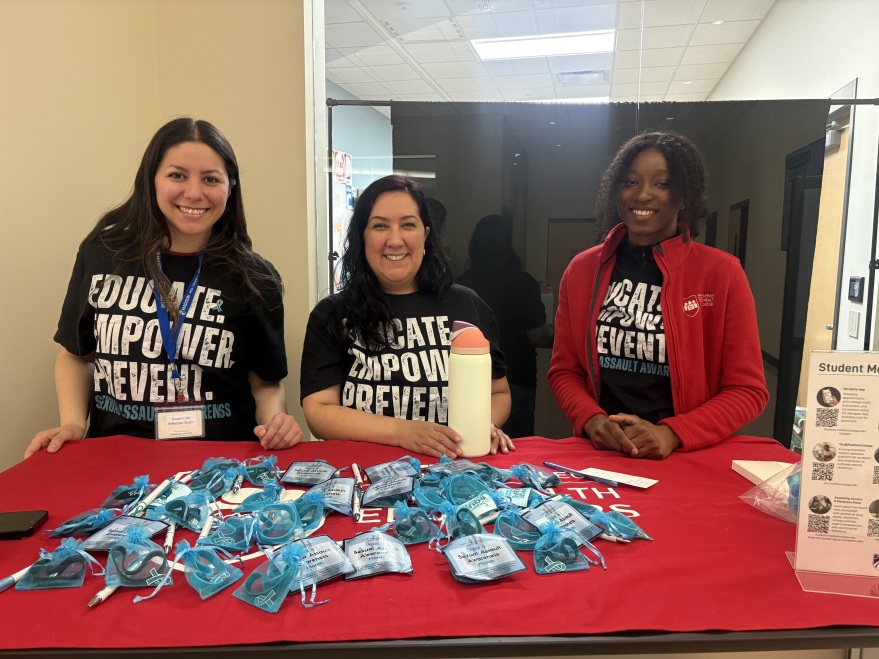Two men sat outside of Porchlight: Solutions To Homelessness, a residential establishment designated for veterans. One man was an Air Veteran who fought in Vietnam and prefers to stay anonymous. The other man C.J., served in the Panama conflict of 1989. These two veterans discussed very serious issues that people in the armed services face.
The anonymous veteran and C.J. shared concern for the lack of support and benefits available to veterans. They expressed that the aid from Veterans Affairs is not enough because they ultimately have the government’s interest in mind, not the individual’s. Each of the two men personally know numerous veterans that have returned home with either severe physical or mental trauma and in some cases, both. Veterans returning from the intensity of war, often need advocates to ensure that they receive sufficient information and make the best decisions for their future.
Steven Bryant had a different point-of-view to offer. Bryant served as an Army Ranger and after going beyond the call of duty he received the title of a “Buffalo Soldier,” and was honorably discharged. In the duration of his service, he was stabbed twice, shot twice and hit with shrapnel from a landmine that his comrade stepped on. His service cost him the use of his legs and as a result he is now wheelchair-bound. Despite his experience he does not let that stand in the way of his ambitions. Right before the dinner, Bryant received word that he was accepted into the PhD program that he had applied to at UW-Madison.
Madison College’s Meeting and Event Planning Program, Phi Theta Kappa and the Volunteer Center teamed up with Porchlight, to serve a commemorative dinner to the veterans of Madison. the anonymous Air Vet shared recalled how terribly American citizens treated the returning veterans, claiming, “it was a war that no one believed in.” Regardless, of the icy reception of his fellow Americans, he expressed how fortunate he felt that he came home with minimal damage to his health unlike the many other returning veterans he knew.
The Air Vet also expressed how thankful he was to arrive home to a supportive family, and that he still possessed the ability to apply his skills to the workforce. This vet modestly decided to put-off activating the benefits he had rightfully earned, as he felt that other veterans had a greater need than he had at the time. He was completely unaware that by doing so, his benefits would depreciate over the years. It was 32 years after his service ended that it became necessary for him to instate his benefits. Upon doing so, he was informed that he no longer had certain aspects of coverage, including dental care and prescription medications.
C.J. is yet another example of an honorably discharged veteran who lost benefits that he was promised. He recounted how, without warning, he learned on March 27 of this year that the VA would no longer cover his prescriptions.
He relied on prescription pain medication to control debilitating chronic pain he incurred through physical trauma. When he was unable to pay for his medication, not only did he have to withstand the escalation of intense physical pain, he was forced to endure days of severe withdrawal symptoms.
Getting a hold of the right person, with the right paperwork and the right instructions has proved incredibly trying – especially with the backlog of claims that the V.A. has yet to process.
Last year, veterans filed more than 1.3 million claims. Regardless of having added nearly 4,000 new employees since 2008, the VA completed less than 80 percent of submitted claims, taking an average of eight months to process. The VA doesn’t use an electronic filing system, and they don’t have plans to be switched over until the end of 2015.
Allison Hickey, the VA’s director of benefits, informed the press that a change in regulations allowed more – a quarter million more – Vietnam Veterans to file for the benefits they should have received long ago due to severe health issues caused by exposure to the pesticide Agent Orange. In addition, veterans from Iraq and Afghanistan are now filing claims at a record rate, “Forty-five percent of them are filing a claim,” Hickey said. “That is unprecedented in terms of the number of veterans that will file a claim with us.”



























